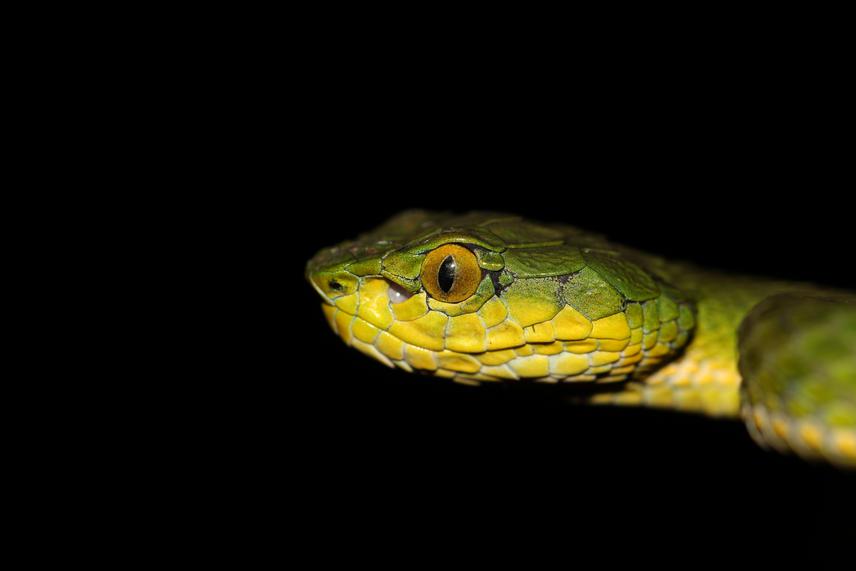Krishna Chaitanya
The Meghamalai Wildlife Sanctuary (MWS) in Tamil Nadu is a region which needs immediate conservation attention. This project will deliver a systematically conducted species richness study to the implementer of conservation, facilitating them to draft a conservation strategy, which is information based, sustainable and measurable.

Large-Scaled Pit Viper.
On a broad scale, the following activities will be undertaken as part of this project
a) Fieldwork
Fieldwork in the form of herpetofaunal surveys will be carried out with the help of two field assistants, each month for an entire year starting from July 2016. Fieldwork would include visual encounter surveys both during day and night. Each of the four ranges which comprise the Meghamalai Wildlife Sanctuary will be surveyed at least once every season of the year.
b) Mapping different microhabitats.
Our preliminary study reveals the importance of micro habitats and how certain specialists have adapted to them. We intend to map these specific microhabitats in the Meghamalai Wildlife Sanctuary so that special emphasis on their conservation can be laid out. This is especially important in human dominated landscapes within the Sanctuary where furtive exploitation of forest produce takes place.
c) Communicating our findings with the forest department
The findings from each trip will be iteratively reported back to the forest department. The final presentation will be made to the Principal Chief Conservator of Forests, Tamil Nadu, along with a detailed booklet of the list and photographs of herpetofauna that were encountered during the year’s surveys.
d) Education and awareness programs for the local populace
Education programs for the local settlers of Meghamalai will be conducted during the course of our surveys. Tamil (the local language) names will be coined for some of the common snakes, lizards and frogs to enable the locals to better identify them. These animals have a better chance at survival once the residents of the landscape identify them with a unique local name. We will also give talks and photographic presentations in the two government schools in Meghamalai during our visits, chiefly to enable a connection between children in the region and the local wildlife.
A special workshop on snake identification and snake bite mitigation will be held during this one year period.
e) Publishing our results
Our results will be published in a peer reviewed journal of repute that accepts checklists of specific landscapes. Any new species encountered shall also be duly described and published in peer-reviewed taxonomic journals of repute.